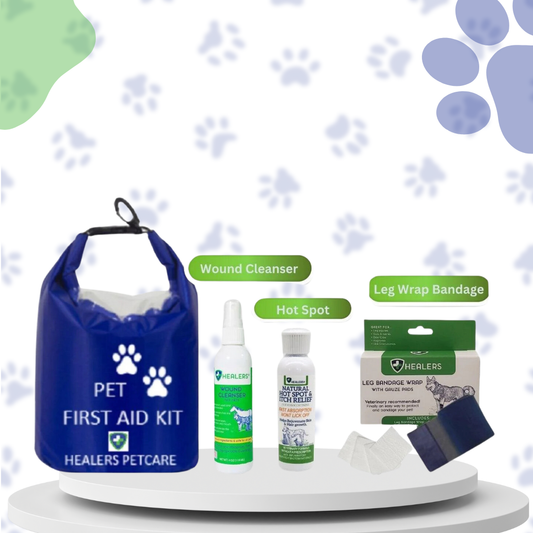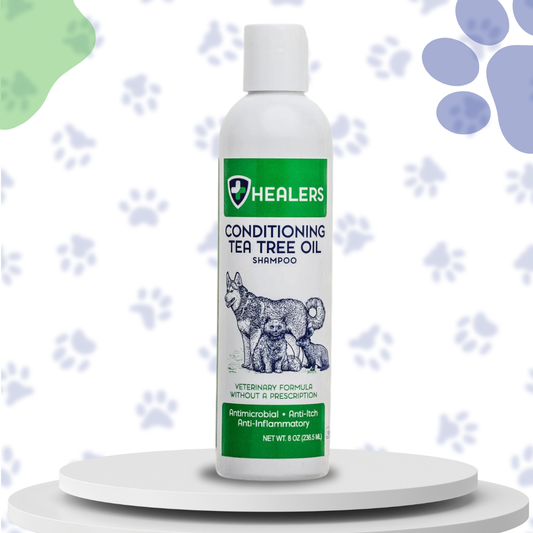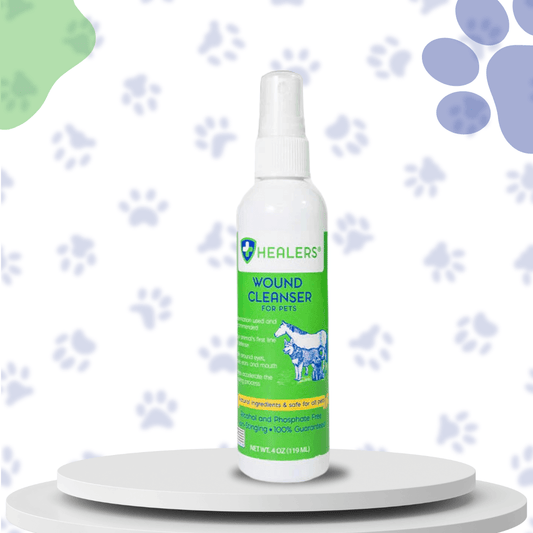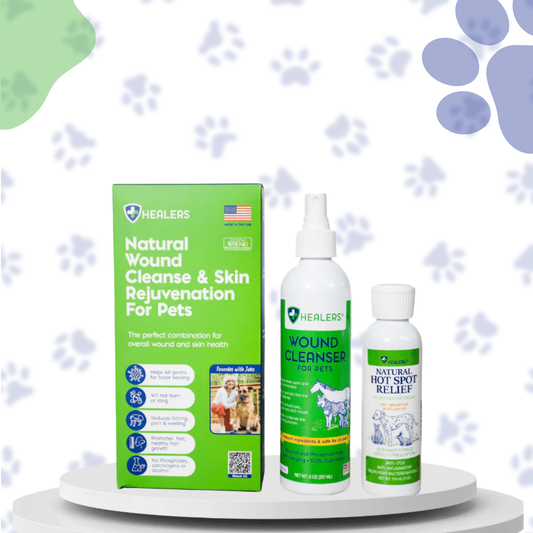How to Care for Your Senior Dog: Essential Health Tips and Advice for Older Dogs
Share
The requirements of our beloved pets also evolve as they age, and thus the following tips will mostly apply to adult dogs. Of course, a dog is a man’s best friend, and the fun of having a buddy to share time together is always a good thing, but senior dogs are going to need more attention in terms of their health, comfort, and happiness. It illustrates common problems in senior dogs which are common at 7 or more years of their age such as arthritis, loss of vision and hearing, and mobility problems.
Being a responsible pet parent, it’s important to know how to care for your older dog to ensure they lead active and comfortable lives. Healers Petcare will provide important insights on how to properly care for a senior dog; things like how to tell when your pet is ill or uncomfortable and how to help them feel comfortable at home, as well as current useful accessories that can assist in enhancing the wellness of the elderly dog.

Signs Your Senior Dog is Healthy
As dogs age, it's essential to keep a close eye on their health and watch for signs of any potential issues. Healthy senior dogs may still be energetic and active, though they often slow down a bit. Here are some key indicators that your senior dog is maintaining good health:
-
Good Appetite and Weight Maintenance
A healthy senior dog is expected to eat well and retain its body weight without seemingly growing skinny. A significant loss or even a gain indicates a potential health danger, so it is always recommended to watch their diet and contact your veterinarian if there are some signs of it. -
Shiny Coat and Healthy Skin
Coat is one of the aspects that can be checked to know whether a dog is healthy or not: dogs with nice smooth and shining hair are healthy. The coat becomes dull, dry or thin, and these signs could mean your older dog lacks essential nutrients, has skin allergies, or some other problem. A professional grooming session or using Healers Skin & Coat Grooming Solution and a diet that is formulated to include omega fatty acids will go a long way towards solving these issues. -
Energetic but Not Overexerted
While certain breeds of dog are no longer the playful and young animals as puppies, the many seniors should not lay down and do nothing all day, they should play gently and should exercise. If your dog is still jumping around and keen on taking short walks or playing with his toys then he is fine. However, if you notice them moving little or not at all then it may be the right time to see the vet -
Alertness and Mental Acuity
Active and happy seniors are well aware of the surrounding space and conditions. You should be aware of some issues or signs related to the loss of cognitive ability or possible medical conditions for which people should observe their mental health: * Action changes: They can be minor, and require the individual to disorient or make them confusing or fail to remember familiar faces or places. -
No Difficulty Breathing or Walking
Your senior dog may need the attention of a veterinarian if he has breathing problems, has a limp, or has difficulty in walking. Arthritis is a typical disease in elderly dogs and constant pain can influence the life quality of the animals. Pets diagnosed with such ailments should be taken for routine veterinary checkups to facilitate optimum control of the diseases.
How to Make an Old Dog Comfortable
Comfort is key to ensuring your senior dog lives out their later years with ease and happiness. As your dog ages, you may need to make adjustments to their daily routine and living environment. Here are some tips to keep your dog comfortable:
-
Provide a Comfortable Bed
Your dog will start developing joint pains in his or her old age and therefore needs a comfortable mat or bed to lay on. Doggy mats or electronic heated sleeping areas may also be useful in case your pet dog suffers from ailments such as arthritis. It does help them to have a place where they can lay down without exerting pressure on their body. -
Maintain Regular Vet Visits
For instance, they require regular check-ups every time they take your dog for a vet across their life cycle. Older dogs should go for check-ups and the veterinarian must be informed on how to manage the different health challenges that may come with aging such as arthritis or disease of the teeth. Your vet may also give specific pet wellness products due to your dog’s health condition required in his body. -
Use Pet Care Products for Comfort
Depending on the types of these products, they are modern products that enhance senior dogs' welfare. Think about using products such as joint supplements for a canine friend, natural pet products for aching pets, and basic pet products for pets with mobility, stress or gastrointestinal problems. Healers PetCare has many products that customers love – supportive wraps that will help with the joint discomfort of your senior canine as they make their way around the house. -
Gentle Exercise and Mental Stimulation
Since your senior dog may not be able to exercise as he used to, taking him for small strolls or swims will help in stretching and also keep the memory active. Just as children’s games benefit the brain, so do toys that require a dog to interact along with foods that need him to solve a puzzle, even if your dog is not very energetic anymore. -
Temperature Control
Older dogs can be more sensitive to extreme temperatures. Keep your home at a comfortable temperature, and provide your dog with warm blankets in the winter and access to cool, shady areas during the summer. This can help them regulate their body temperature and avoid unnecessary stress.
Senior Dog Care Facilities
In some cases, senior dogs may need specialized care that goes beyond what can be provided at home. Senior dog care facilities, such as pet retirement homes or rehabilitation centers, can be an excellent option for dogs that need round-the-clock care, specialized treatment, or help with mobility issues. These facilities often provide:
- Physical Therapy and Rehabilitation: Many senior dog care centers offer therapeutic services like massage, hydrotherapy, and laser treatments, which can help alleviate pain and improve mobility.
- Veterinary Supervision: Senior dog care facilities typically have in-house veterinarians or veterinary technicians who can monitor your dog’s health and provide medications or treatments as needed.
- Socialization and Mental Stimulation: These facilities often provide opportunities for senior dogs to interact with other dogs, which can help keep them mentally stimulated and emotionally balanced.
Choosing a reputable senior dog care facility can give you peace of mind if you need to travel or if your dog requires more attention than you’re able to provide at home.
For elderly dog owners seeking pet consumables, Healers PetCare provides quality natural products which promise to provide comfort, enable movement and free your dog from pains. These include joint support which is vital in senior dogs; calming wraps; they are also essential pet products in treating some of the diseases that affect the senior dogs.

Conclusion
Caring for your senior dog is a noble activity, though it comes with a certain level of complexity that anyone caring for a senior canine would understand. Knowing good health indicators and understanding how to provide comfort to dogs in their senior years and selecting appropriate pet care products would help your dog age well. If you want to provide your dog with new stifle products that can help in mobility, joint aid or any overall way, check out healers petcare – they sell many natural products for your dog. Your seniors can still lead a healthy and happy life after they reach the senior stage; this is if they are given the right care that they deserve.






